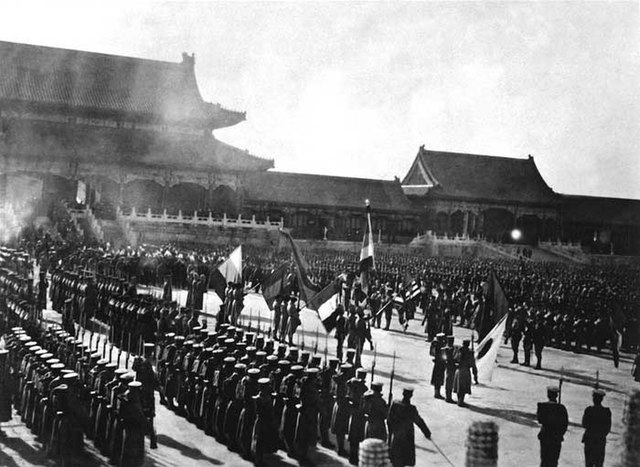The Great Leap Forward was an economic and social campaign within the People's Republic of China (PRC) from 1958 to 1962, led by the Chinese Communist Party (CCP). Party Chairman Mao Zedong launched the campaign to reconstruct the country from an agrarian economy into an industrialized society through the formation of people's communes. Mao decreed that efforts to multiply grain yields and bring industry to the countryside should be increased. Local officials were fearful of Anti-Rightist Campaigns and they competed to fulfill or over-fulfill quotas which were based on Mao's exaggerated claims, collecting non-existent "surpluses" and leaving farmers to starve to death. Higher officials did not dare to report the economic disaster which was being caused by these policies, and national officials, blaming bad weather for the decline in food output, took little or no action. Millions of people died in China during the Great Leap, with estimates ranging from 15 to 55 million, making the Great Chinese Famine the largest or second-largest famine in human history.

Rural workers smelting iron during the nighttime in 1958
Government officials being sent to work in the countryside, 1957
A canteen in a people's commune, 1958
A minecart leading to the steel base, October 1957
China, officially the People's Republic of China (PRC), is a country in East Asia. With a population exceeding 1.4 billion, it is the world's second-most populous country. China spans the equivalent of five time zones and borders fourteen countries by land. With an area of nearly 9.6 million square kilometers (3,700,000 sq mi), it is the third-largest country by total land area. The country is divided into 33 province-level divisions: 22 provinces, five autonomous regions, four municipalities, and two semi-autonomous special administrative regions. Beijing is the national capital, while Shanghai is its most populous city and largest financial center.
10,000-year-old pottery, Xianren Cave culture (18000–7000 BCE)
Yinxu, the ruins of the capital of the late Shang dynasty (14th century BCE)
China's first emperor, Qin Shi Huang, is famed for having united the Warring States' walls to form the Great Wall of China. Most of the present structure dates to the Ming dynasty
The Eight-Nation Alliance invaded China to defeat the anti-foreign Boxers and their Qing backers. The image shows a celebration ceremony inside the Chinese imperial palace, the Forbidden City after the signing of the Boxer Protocol in 1901.








